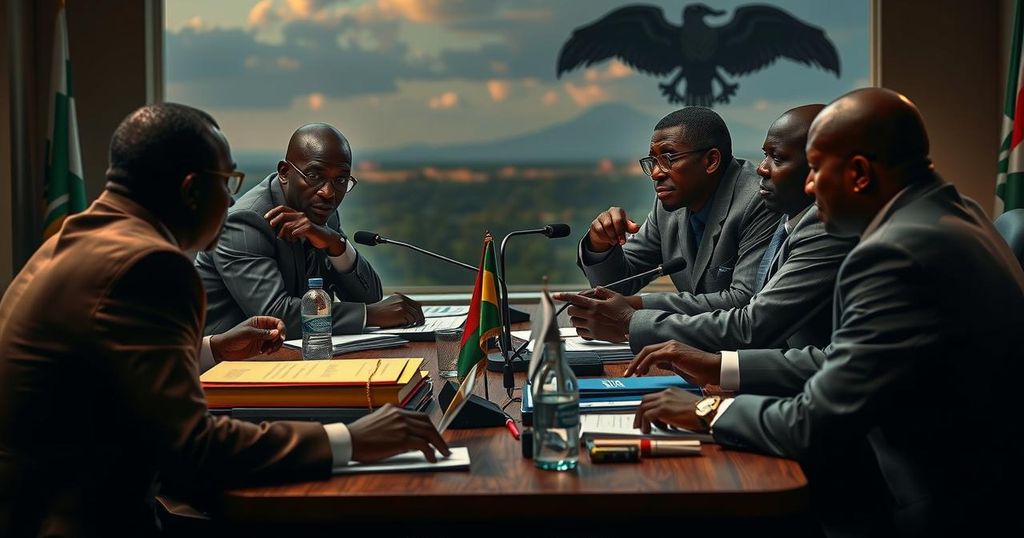The South Sudan peace talks have resumed in Kenya after a four-month break due to political upheaval and the dismissal of the previous government delegation. These negotiations aim to address issues between the government and opposition groups not included in the 2018 peace agreement, in an effort to stabilize a country recovering from civil conflict. New concerns about a contentious detentions law and delays in holding elections complicate the situation further.
The peace talks for South Sudan resumed in Nairobi, Kenya, on Wednesday after a four-month hiatus marked by political turmoil and the dismissal of the government delegation. These discussions involve the South Sudanese government and opposition groups that were absent from the 2018 peace agreement, aimed at ending a protracted conflict that has devastated the nation’s economy. The initiative, termed ‘Tumaini,’ meaning hope in Swahili, aims to foster peace and stability in a country struggling with the aftermath of a five-year civil war.
Initially launched in May, the peace talks were suspended following the abrupt dismissal of the previous government delegation by President Salva Kiir. The newly appointed team faced challenges in reaching Nairobi due to unexplained travel delays, which added further uncertainty to the process. President Kiir noted that these discussions would not supplant the 2018 agreement but seek to incorporate the concerns of factions that did not sign the original deal.
As South Sudan continues to grapple with the unresolved 2018 peace accord, the decision to postpone elections initially set for December 2024 to 2026 further complicates the political landscape. This postponement has been attributed to difficulties in voter registration, exacerbated by a severe economic crisis that has led to civil servants not receiving salaries for over a year. Additionally, South Sudan’s reliance on oil exports has been hindered by infrastructural issues related to the ongoing civil war in neighboring Sudan.
In the recent discussions, participants voiced concerns over a controversial new law allowing detentions without warrants, expressing that it undermines human rights principles. Chief mediator Lazarus Sumbeiyo called upon all parties to resolve outstanding issues efficiently. Pagan Amum, representing the South Sudan Opposition Movement Alliance, stressed the urgency of adhering to previous agreements, emphasizing that this represents a crucial opportunity for the nation. Conversely, Kuol Manyang Juuk from the government urged collaboration to build on existing achievements rather than starting anew.
The peace talks in South Sudan are a continuation of efforts to stabilize a nation beset by years of conflict, underscoring the importance of diplomatic dialogue in resolving internal strife. Following the significant devastation from a five-year civil war, these discussions are critical for integrating holdout groups and solidifying the nation’s peace architecture established in the 2018 accord. However, logistical hurdles and political instability have challenged the progress, necessitating a renewed commitment from all stakeholders. The postponement of elections and existing human rights concerns further illustrate the complexities faced in restoring order and governance in South Sudan.
In conclusion, the resumption of peace talks in South Sudan represents a pivotal moment for the country’s quest for stability. With the involvement of various factions not included in previous agreements, these discussions aim to rectify grievances and pave the way toward lasting peace. The commitment from both the opposition and government representatives will be essential in addressing the ongoing humanitarian crisis, implementing prior agreements, and ultimately ensuring that the country’s future is safeguarded from chaos and disorder.
Original Source: apnews.com






